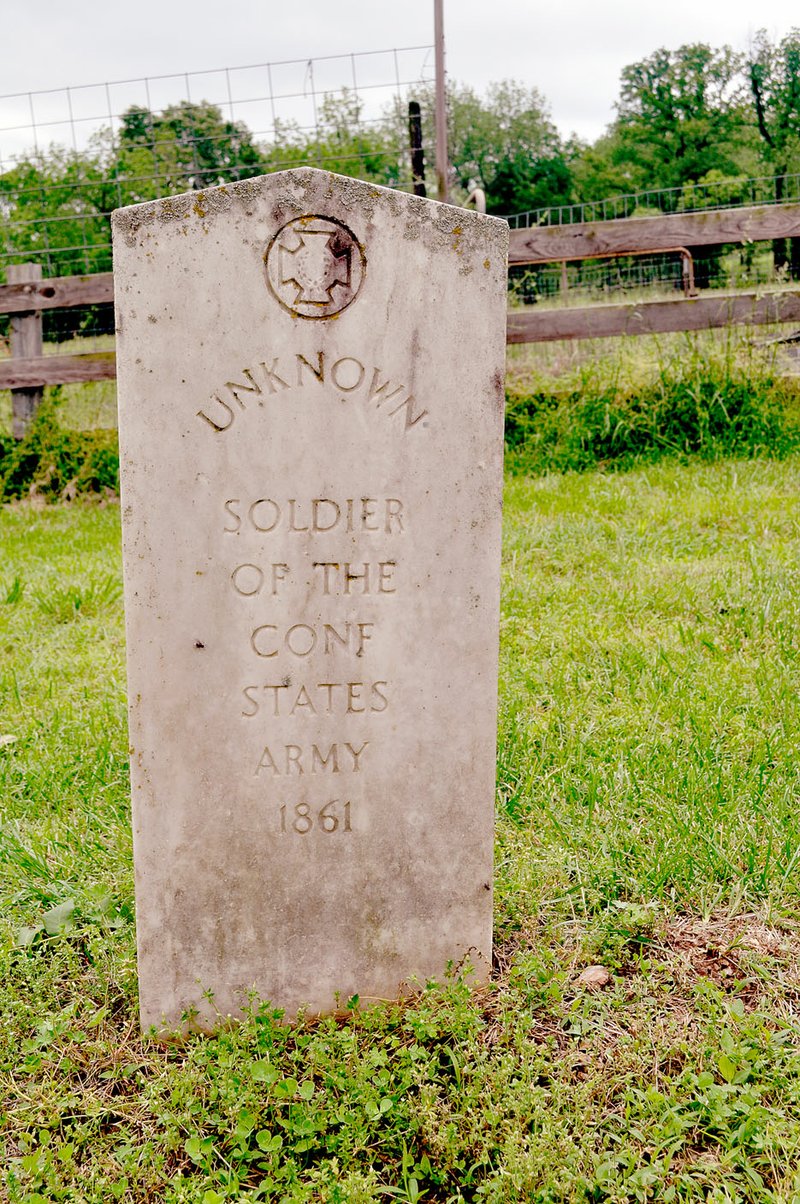The grave of an unknown Confederate soldier rests on the Manning farm in Southwest City.
Galen Manning said the grave is on the same plot as his mother's house, which is more than 100 years old. When Manning was growing up, the grave was just a rock headstone and footstone. Then in the 1970s, his father, Walter Manning, contacted a congressman, and Washington sent a marble headstone like the ones in Arlington Cemetery. It says, "Unknown Soldier of the Conf. States Army 1861."
Manning said he does not know much about the unknown soldier but knows he died of disease, not injury. According to an online search, most deaths in the Civil War were caused by disease. Of the 620,000 deaths in the war, only about 205,000 were the result of battle wounds. Most of the rest were from diseases. Dysentery alone killed more than 90,000 soldiers, according to the online search.
Manning said Sterling Price, a former governor of Missouri, was appointed major general of the Missouri State Guard and convened 7,000 troops on the Cowskin Prairie. He said 2,000 of those troops were unarmed, and those who had weapons had mostly squirrel rifles and shotguns. Food was their most pressing concern, he said.
Troops and their animals drank from the spring on what is now the Manning farm. Among the troops was George Washington Manning, Galen Manning's great-great-grandfather, who later returned to the land and bought it cheaply after the war. Seven generations have now lived on the farm, Manning said.
After breaking camp at what would become the Manning Farm, General Price and his troops went on to fight the battle of Wilson's Creek in Springfield, Mo., which was a Confederate victory, Manning said.
Regarding the soldier's grave, Manning said, "We're very much tied to our land. Everything on it is personal. The soldier's grave feels personal. It brings the reality of war home. Brings it right to our doorstep."
General News on 05/30/2019

